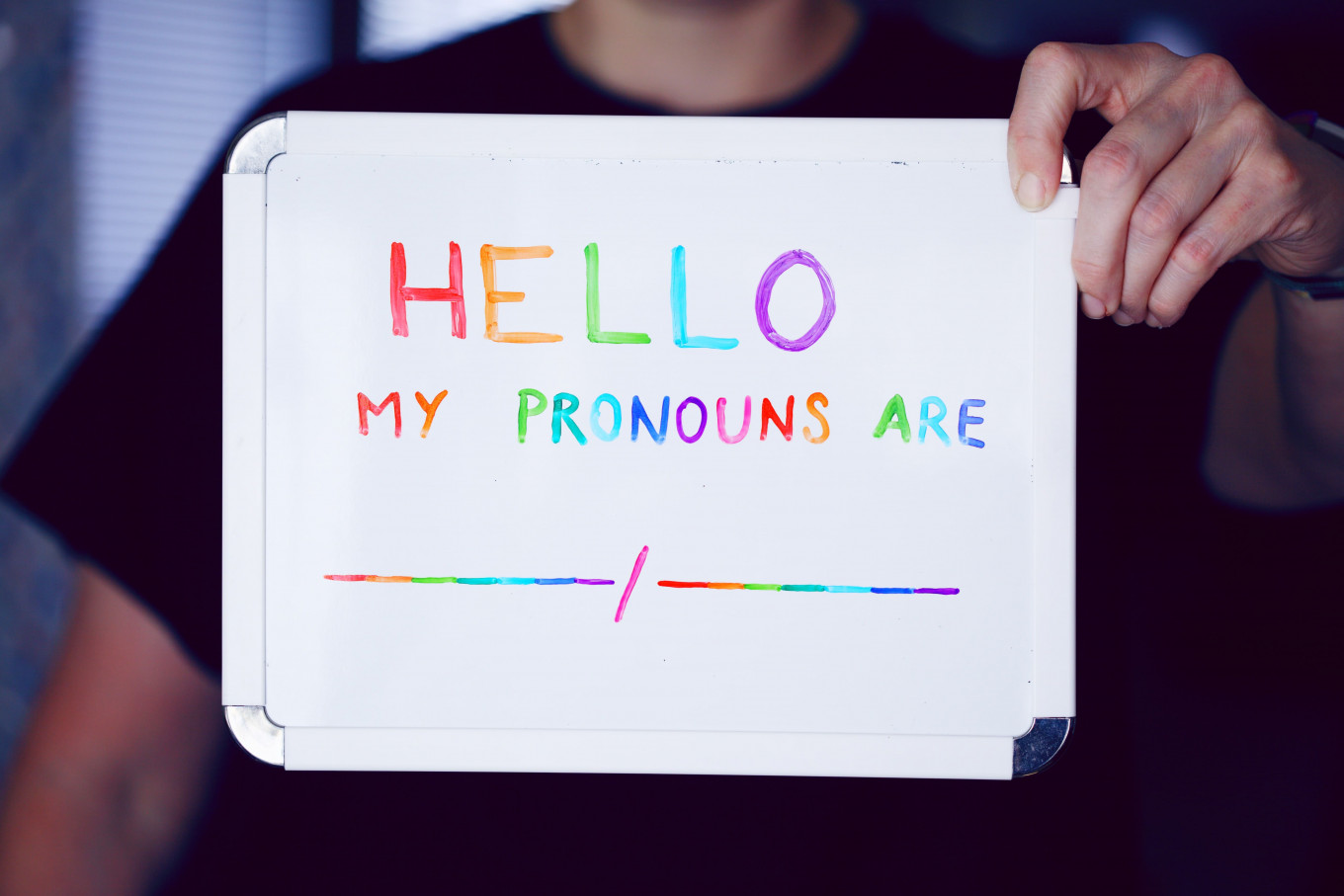Popular Reads
Top Results
Can't find what you're looking for?
View all search resultsPopular Reads
Top Results
Can't find what you're looking for?
View all search resultsClaiming nonbinary space
Genderlessness has always been a part of Indonesia’s diverse cultures.
Change text size
Gift Premium Articles
to Anyone
N
onbinary people have been making waves on social media this past week, thanks to the courage of a student at Hasanuddin University in Makassar, South Sulawesi, who openly declared themself as not identifying exclusive as either female or male.
A viral video clip shows a lecturer telling the student to leave the campus after the latter responded they were nonbinary when prompted by a question about their gender.
As with many videos that go viral, the 2-minute clip sparked public debate, pitting those who mocked nonbinary people and the gender identity on one side against those on the other, who praised the student for publicly declaring their identity.
In a society where the predominant view is of a binary world made up of male and female, it is refreshing to see open discourse on an issue that has more than two sides. Religious conservatives don’t always have their way, and certainly not on social media in this particular case.
But the fact is, genderlessness has always been a part of Indonesia’s diverse cultures.
The Bugis tribe from Makassar, for instance, recognizes five genders: men, women, calalai (trans men), calabai (trans women) and bissu, believed to represent gender neutrality as this identity has both male and female characteristics. Other cultures have cross-gender traditional dances. The Lengger dance from Banyumas, Central Java, and the Bebancihan dance from Bali both are performed by male dancers dressed as females.
Even the Indonesian language is far more gender-neutral compared to English and many other world languages. The word “ia” is a genderless third person singular, whereas English uses either “he” or “she”. Indonesian doesn’t have “brother” or “sister” either, and instead uses the genderless “kakak” or “adik” denoting a sibling as either elder or younger. Neither does it have gendered articles or noun endings, like Spanish or French.
Nonbinary people nevertheless face challenges in gaining acceptance in Indonesian society, which is currently dominated by conservatism. We continue to hear reports of discrimination, bullying and other forms of gender-related persecution, even of parents forcing their nonbinary or LGBTQ children into taking conversion therapy.
Nonbinary individuals already endure constant inner turmoil in self-identification as they grow up. But today, thanks to the internet, they can find answers to questions that their parents, relatives or teachers will not or cannot give.
Social media inspires them to be true to themselves, with international stars like singer Demi Lovato, actor Elliot Page and model Cara Delevingne coming out about their gender identity. The importance of that communal sense of “there are others like me” cannot be understated.
It is also in the internet, particularly social media platforms, that nonbinary people can place their hopes for changing public attitudes. As the episode of the Makassar student shows, all it takes is courage to spark open debate.
We may not expect our ID cards or passports to offer choices other than male or female for our sex. But since nonbinary is no stranger to Indonesian cultures, traditions or languages, this is essentially about nonbinary people claiming their space, both online and offline.











